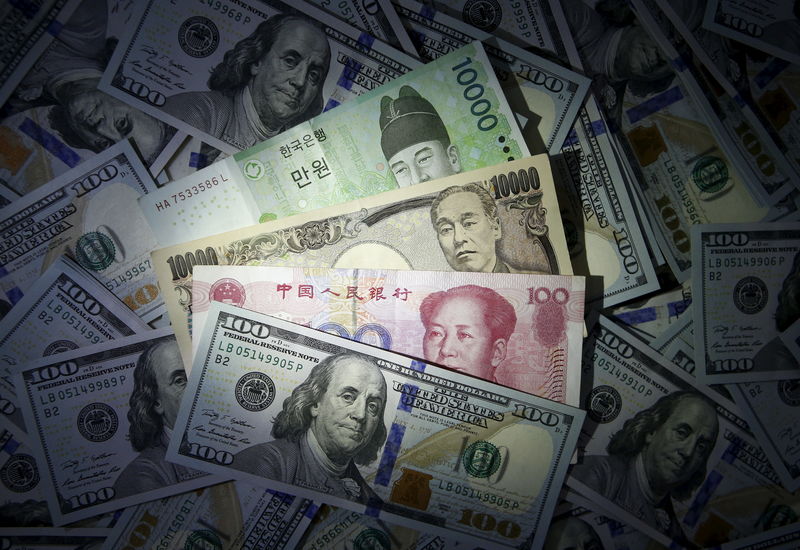(Bloomberg) -- Investors are plowing into Treasuries, favoring shorter maturities in particular, on growing conviction that the Federal Reserve will cut borrowing costs this year to contain the fallout from trade tensions.
Two-year yields dropped to their lowest level since 2017 amid a five-day slide that’s the longest since January. China’s move to extend retaliatory tariffs on American imports helped ignite the rally, and a report showing weakness in U.S. manufacturing added to the grim mood. St. Louis Fed President James Bullard accelerated the haven demand with comments that a rate cut may be needed “soon” amid the trade war.
Trade friction and a darkening growth outlook have traders betting that the Fed will slash its target rate by more than a half percentage point by year-end, and further in the first quarter of 2020. Short-dated Treasuries, which are more sensitive to Fed expectations, will likely outperform as investors price in policy easing, according to Bank of America Corp (NYSE:BAC).’s Mark Cabana.
“The market is increasingly convinced the Fed will cut,” the bank’s head of U.S. interest-rate strategy said via email. “The only question is how soon, and by how much.”
Yields on two-year Treasuries slumped as much as eight basis points Monday to 1.84%. Meanwhile, benchmark 10-year yields dropped to 2.07%, the lowest since September 2017. Yields in the euro area also broke new ground, with the rate on 10-year German bunds briefly falling to a record low of about minus 0.22%.
The outperformance of two-year Treasuries relative to 10-year notes increased the yield premium of the longer note over the shorter to as much as 25 basis points, the most in about a month, in a move known as “bull-steepening.” The yield curve is closely monitored for its reliability in predicting recessions.
“Bull-steepenings generally take place when the market starts to see the risk of recession prompting the Fed to act,” said Seema Shah, a global investment strategist for Principal Global Investors. It “reflects the rush of negative sentiment over the weekend which, if it isn’t arrested by positive developments on the trade front, has the potential to take the market much lower.”
Banks such as JPMorgan Chase & Co (NYSE:JPM). and Barclays (LON:BARC) have updated their calls to project cuts in 2019. JPMorgan has also downgraded its Treasury yield forecasts, citing a “deteriorating growth outlook” alongside escalating trade tensions.
“The latest developments this week are likely to have lasting damaging effects on business confidence,” JPMorgan analysts led by Matthew Jozoff and Alex Roever wrote in a note. “Growth concerns are unlikely to dissipate over the near term, and could in fact build further.”
